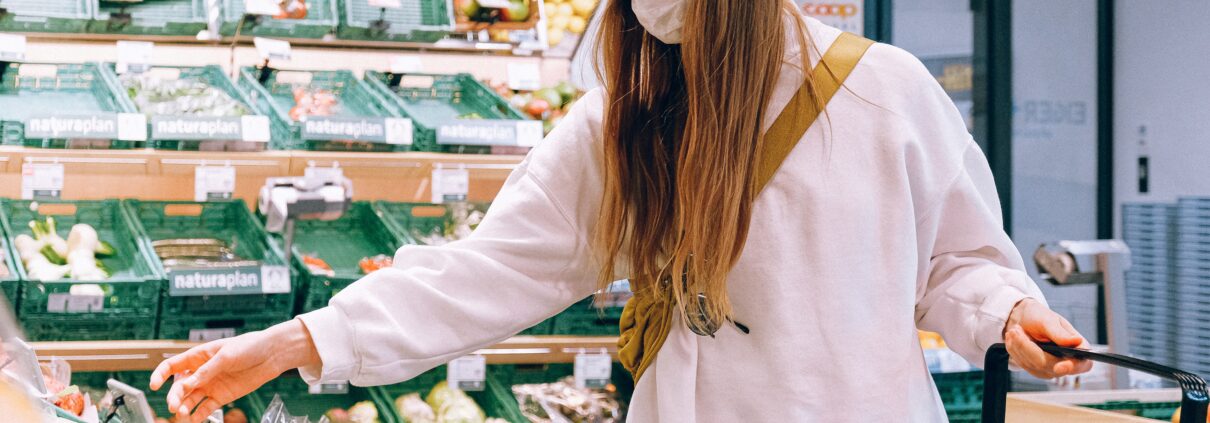
10 Places You Should Wear a Face Mask in Australia
If community transmission increases in your state or territory, face mask recommendations will alter. So, it’s critical to keep up with the latest medical sanctions in your region, provided by your state or territory government. Although even when community transmissions are low, you should still consider wearing a face mask in the following locations.
In What Situations Should I Wear a Face Mask?
Face masks help limit the spread of germs, as when someone speaks, coughs, or sneezes, small droplets might be released into the air, infecting others. When someone is unwell, wearing a face mask helps minimise the quantity of germs they discharge and protect others from becoming ill. A face mask also shields the wearer’s nose and mouth from bodily fluid spills or sprays.
In general, if you are in an area with one of the following characteristics, you should wear a face mask to protect yourself and others.
- Face masks should be worn in crowded situations where you can’t stay at least 1 metre away from other people.
- Face masks should be worn in spaces without ventilation and in rooms with poor or unknown ventilation. Although it is not always easy to determine the rate of air recirculation or availability of fresh outdoor air, so if you are not sure, it is safest to put on your face mask.
- If you cannot keep physical distancing from others in outdoor public settings, you must wear a fitting face mask.
- When in an indoor section of non-residential property, you must wear a fitting face mask.
Above all, people who feel sick should always wear a face mask when around others, as the face mask will help protect others from catching that illness. For more specific information, the following ten places are the most common examples of locations where these characteristics are prevalent, requiring all inhabitants to wear a face mask.
1. Public Transport
Both staff and customers must wear a face mask when using and waiting for public transportation. This includes buses, light rails, railway stations, ferry docks, rental vehicles, taxis, and rideshare services.
2. Supermarkets and Shopping Malls
Both staff and customers who visit retail and business premises that sell goods or services to members of the public are required to wear face masks at all times. This includes shopping centres, post offices, bank branches, spas, tattoo parlours, massage parlours, betting agencies, hairdressers, nail, beauty, tanning, and waxing salons.
3. In All Common Indoor Areas of Residential Premises
Anyone who walks through strata complexes, community buildings, and apartment common areas must wear a face mask at all times.
4. Workplaces
All individuals who work in indoor workplaces must wear a face mask; this includes construction sites. Specifically includes workers of hospitality venues and other places where staff deals directly with members of the public.
5. Residential Aged Care Facilities
Face masks are unnecessary for residents at an elderly care home, but face masks are essential for all visitors and employees.
6. Schools
All staff and students from Year 7 and above are advised to wear face masks while on school premises.
7. Controlled COVID-19 Safe Outdoor Gatherings
8. Indoor & Outdoor Recreation Facilities
All staff and participants of gym classes, dance classes and other exercise classes must wear a face mask at all times unless it is strenuous excise that does not require a face mask. All staff and customers at major recreation facilities such as stadiums, showgrounds, theme parks, racecourses and motor racing tracks are required to wear a face mask at all times. All staff and members at religious services held at public worship sites must wear a face mask at all times.
9. Entertainment Facilities
All staff and customers at entertainment facilities such as theatres, cinemas, music and concert halls are required to wear a face mask at all times.
10. Airports and Commercial Domestic Flights
Airports and all commercial and domestic flights around Australia are subject to face mask regulations. When at an airport, including the passenger waiting area, and when a domestic or commercial flight is landing or taking off from an NSW airport or flying in NSW air, you must wear a face mask.
When flight crew members and airport personnel are not engaging directly with passengers or aboard an aircraft with no passengers on board, they may remove their face masks.
All airport workers must also wear a face mask when dealing with the public, including engineers, technical staff, cleaners, luggage handlers, individuals delivering or removing food and other goods connected with an aircraft, airline employees, law enforcement, and border security personnel.
What is the Best Type of Face Mask to Wear?
In general, the best option for a face covering is a medical mask. Medical masks – produced by marketing leading fabric manufacturing facilities – provide a physical barrier to block germs coming into your body through your mouth and nose while also preventing any germs from spreading from your body to others.
While any face mask is better than no mask, masks with exhalation valves, in particular, should be avoided if possible because they are far less effective in limiting the spread of potentially infected particles. While face masks with exhalation valves protect the wearer well, they do not stop the wearer from transmitting germs to other people.
At Biomed, we proudly hold one of Australia’s best medical grade healthcare fabrics for reusable face masks. Our fabric manufacturing facilities produce complex and sensitive fabric combinations which have anti-bacterial properties. Biomed’s medical mask designs provide maximum comfort and versatility, perfect for any age to wear happily. Our highly tested and engineered medical masks provide maximum comfort and versatility, perfect for any age to wear comfortably.
Our fabric manufacturing facilities can produce various medical masks fabrics in multiple sizes, layers and specifications. Biomed can assist any customer with custom designs such as logos. We offer five reusable medical masks which suit different price ranges and different usages;
- Bioshield-05
- 5-layer face mask
- 7-layer face mask
- Anti-bacterial face mask
- 3-layer face mask
Stay Safe with BioMed
At Biomed, our mission as professional fabric manufacturers is to create high-quality medical masks, healthcare fabrics and produce superior fabric manufacturing, which is why we ensure that our business operations always align with our ISO 9001 certification for quality management.
Our dedication to strict Australian fabric manufacturing standards demonstrates the reliability of our products and our commitment to providing our customers with superior products that offer a high level of comfort through the minimisation of skin irritations, alongside anti-bacterial and hypoallergenic properties for safety and comfort.
Through the prevention of germs and bacteria, the life of medical products – such as CPAP masks, CPAP Chin Straps, Back Support Braces and many more CPAP Accessories – can be prolonged. As the build-up of bacteria and germs can cause fabrics that are not of a medical-grade, to deteriorate over time and become unsanitary and uncomfortable to wear.
At Biomed, we have a longstanding partnership with ResMed CPAP Supplies to supply medical grade healthcare fabrics for their products, which have offered superior patient comfort for decades. To find out more information on our full range of CPAP Accessories, CPAP Chin Straps Face Masks, and Medical-Grade Healthcare Fabrics, please contact our team of Biomed medical fabrics and materials experts on (02) 9758 3855.




